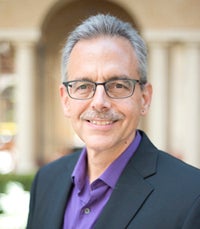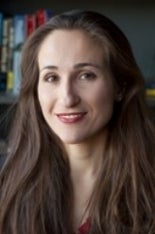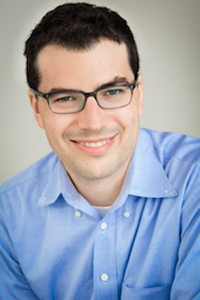Will Trump keep fighting for Census citizenship question?
Two weeks after a Supreme Court decision halted the addition of a citizenship question to the 2020 Census, President Donald Trump is expected to announce an executive action today to obtain an estimate of U.S. citizenship through other means. News of Trump’s expected announcement comes days after a federal judge rejected the administration’s plan to switch legal teams defending the citizenship question. USC experts are available to discuss the latest twists and turns in the fight over the proposed Census 2020 citizenship question.
Contact: Jenesse Miller, (213) 810-8554 or jenessem@usc.edu
 Undercount may not be a side effect, but the “actual goal”
Undercount may not be a side effect, but the “actual goal”
“With the Supreme Court already having labeled the Trump administration’s former rationale of the question ‘contrived,’ the administration seems to have given up any attempt to even offer a fig leaf: it looks like an undercount is now not just an unfortunate side effect of adding the question but the actual goal.
“This is a challenge to democracy and the rule of law—and to social science researchers that rely on accurate Census data for our work.”
Manuel Pastor is a professor of sociology and American studies and ethnicity at the USC Dornsife College of Letters, Arts and Sciences. He directs USC’s Center for the Study of Immigrant Integration.
Contact: (213) 740-5604 or mpastor@college.usc.edu
 Trump’s actions “instill fear among immigrants”
Trump’s actions “instill fear among immigrants”
“Trump’s numerous executive actions on immigration—many of which have been blocked by federal judges—are rooted in racism and designed to instill fear among immigrants and their families.
“This latest executive action is no different. It continues to threaten an undercount by discouraging participation, which will have long-lasting consequences for states and local governments, researchers, policy makers and the functioning of our society.”
Jody Agius Vallejo is an associate professor of sociology and American studies and ethnicity at the USC Dornsife College of Letters, Arts and Sciences and associate director of USC’sCenter for the Study of Immigrant Integration.
Contact: (213) 740-5047 or vallejoj@usc.edu
 A majority of California’s population is “hard to count”
A majority of California’s population is “hard to count”
“A majority of California’s population falls into categories that are recognized by the Census as hard to count. The addition of a citizenship question will disproportionately impact these populations, in particular, Latinos and Asian Americans communities.
“If the question is included, it will likely cause an undercount in many California communities leading to significant political and financial consequences for the state. California will likely lose a congressional seat, possibly two. Since a myriad of federal programs distribute funding based on census data, California could lose millions in federal dollars.”
Mindy Romero is the founder and director of the California Civic Engagement Project at the USC Price School of Public Policy.
Contact: (530) 665-3010 or msromero@usc.edu
 An undercount would be a “disaster”
An undercount would be a “disaster”
“The census allows us to address national issues while focusing on local needs and priorities and to reknit some of our social fabric. As far as I know, we’re the only country in the world that ties political representation to a census, which is completely unique.
“There are definitely some complexities as to what an undercount really means, but an undercount is a disaster.”
Colin Maclay is executive director of the Annenberg Innovation Lab at the USC Annenberg School for Communication and Journalism and principal investigator ofCount the Nation, a collaboration led by AnnLab and Wise Entertainment committed to an accurate 2020 census.
Contact: c.mac@usc.edu
 And what about the Trump administration’s legal team?
And what about the Trump administration’s legal team?
“It’s rarely a good thing when a trial team gets completely replaced mid-litigation. Here, it may well signal serious problems for the administration’s case.
“If the underlying dispute between the president and his lawyers involves the veracity of the administration’s claims or the plausibility of its legal theories, more legal setbacks may be quick to follow.”
Sam Erman is a professor at the USC Gould School of Law, where he studies the Constitution and citizenship. He clerked for Judge John Paul Stevens and Judge Anthony M. Kennedy of the United States Supreme Court.
Contact: (213) 740-6372 or serman@law.usc.edu
Photo via Pixabay



